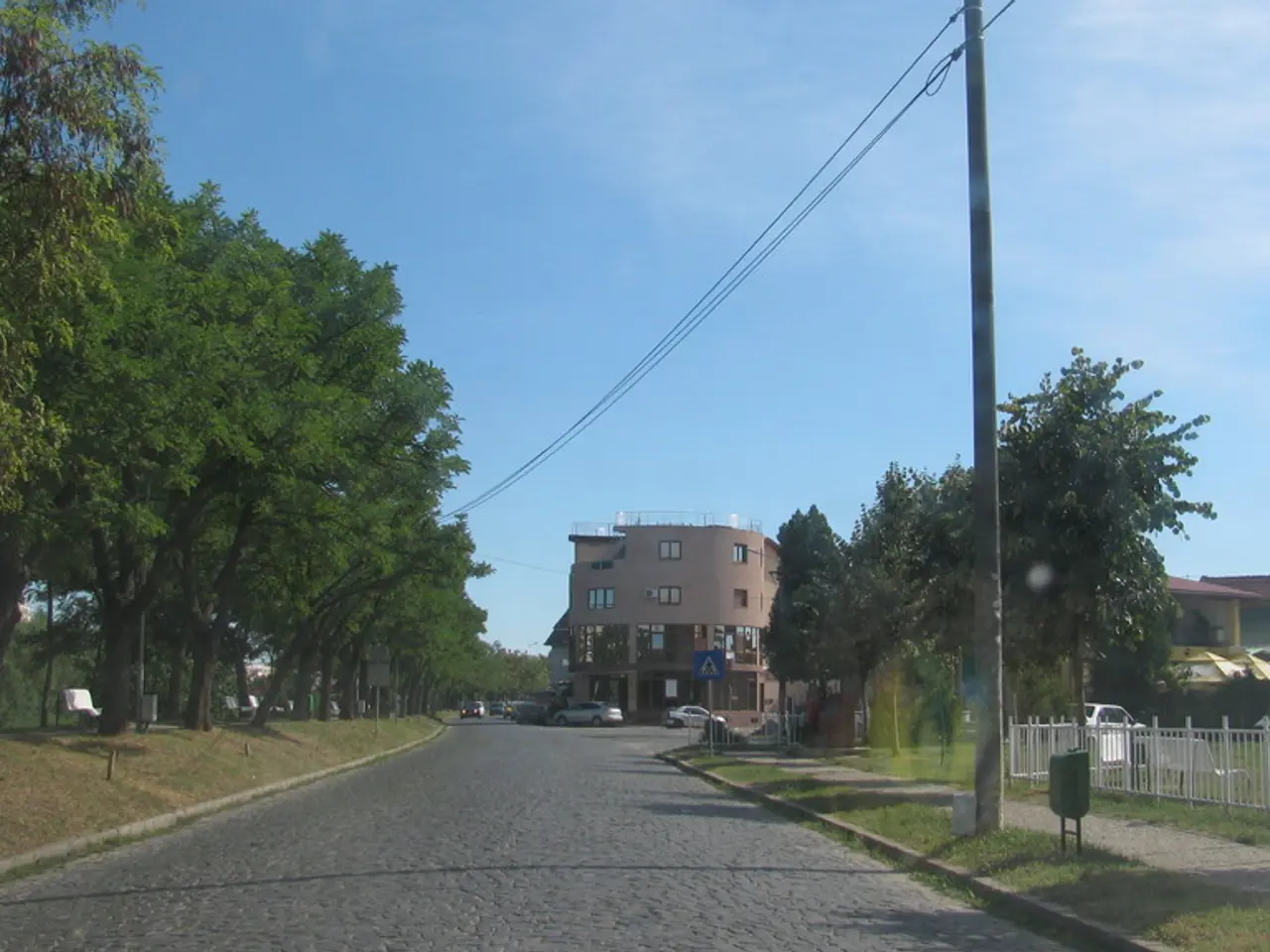Southeast Asia's Initial Battery-Swapping Station, Integrated with AI, Now in Operation, Courtesy of U Power
U Power, a global leader in data-driven energy infrastructure, has made a significant stride in the region with the launch of Southeast Asia's first operational AI-integrated battery-swapping station. Located in Phuket, Thailand, this groundbreaking facility marks a milestone in the company's mission to integrate mobility energy with digital energy trading.
The station, a joint venture with SUSCO Public Company Limited, operates 24/7, serving electric taxis and ride-hailing fleets with rapid battery swaps within minutes. The zero-carbon battery-swapping technology, designed to withstand tropical climates, is a testament to U Power's commitment to sustainability.
The Phuket station is more than just a charging point; it is integrated with U Power's Battery-bank system, offering EV drivers the opportunity to earn battery-tokens as incentives for their swapping activities. This innovative model aims to encourage adoption and usage of electric vehicles (EVs) and is designed to scale with more stations and compatible EVs across the region.
U Power's foray into Southeast Asia began in May 2025 with the delivery of Southeast Asia's first battery-swapping compatible taxi fleet, developed in collaboration with partners UNEX EV and CP-MG. The operation leverages U Power's proprietary UOTTA™ AI technology to optimise battery swapping, supporting multiple vehicle types, including the potential for autonomous vehicles.
Beyond Thailand, U Power is expanding globally with strategic partnerships. In Hong Kong, the first UOTTA smart swapping station opened in June, with plans to build 55 stations to serve taxis, buses, and ferries. In Macau, U Power has agreements to facilitate the deployment of UOTTA battery-swapping stations and sales of compatible EVs.
U Power is also collaborating with Beijing Foton to promote battery-swapping compatible electric heavy trucks, buses, and vans in various markets. In Singapore, the company launched the "ESP Model" aiming to deploy 5,000 swappable EVs and corresponding stations, converting 300 existing MG EP taxis into swappable versions.
The company's strategic "Vehicle-Station-Cloud-Token" framework aims to enable seamless integration for the widespread adoption of autonomous vehicles. U Power has also partnered with the Portuguese Taxi Association to establish a joint venture in Europe and plans to launch its first station in Peru, in partnership with local ride-hailing platform Ualabee, in South America.
Johnny Lee, CEO and Chairman of U Power, commented that the inauguration of the Thailand Station is a significant milestone in expanding their global footprint and a pivotal advancement in their joint venture with SUSCO. The station, weather-resistant and designed to withstand Phuket's tropical climate, provides robust protection against heavy precipitation and high humidity.
With these developments, U Power is set to revolutionise battery-swapping infrastructure across the globe, fostering a more sustainable and AI-driven transportation future.
- U Power, in collaboration with SUSCO Public Company Limited, launched Southeast Asia's first operational AI-integrated battery-swapping station in Phuket, Thailand.
- The station, operational 24/7, serves electric taxis and ride-hailing fleets, offering rapid battery swaps within minutes.
- U Power's zero-carbon battery-swapping technology, designed to withstand tropical climates, is a testament to the company's commitment to sustainability.
- The station integrates with U Power's Battery-bank system, offering EV drivers the opportunity to earn battery-tokens as incentives for their swapping activities.
- U Power is expanding globally with strategic partnerships, including the opening of a UOTTA smart swapping station in Hong Kong and agreements in Macau, Hong Kong, and Singapore for battery-swapping stations and compatible EVs.
- The company's strategic "Vehicle-Station-Cloud-Token" framework aims to enable seamless integration for the widespread adoption of autonomous vehicles, with partnerships in Europe, Peru, and potential deployment in South America.




